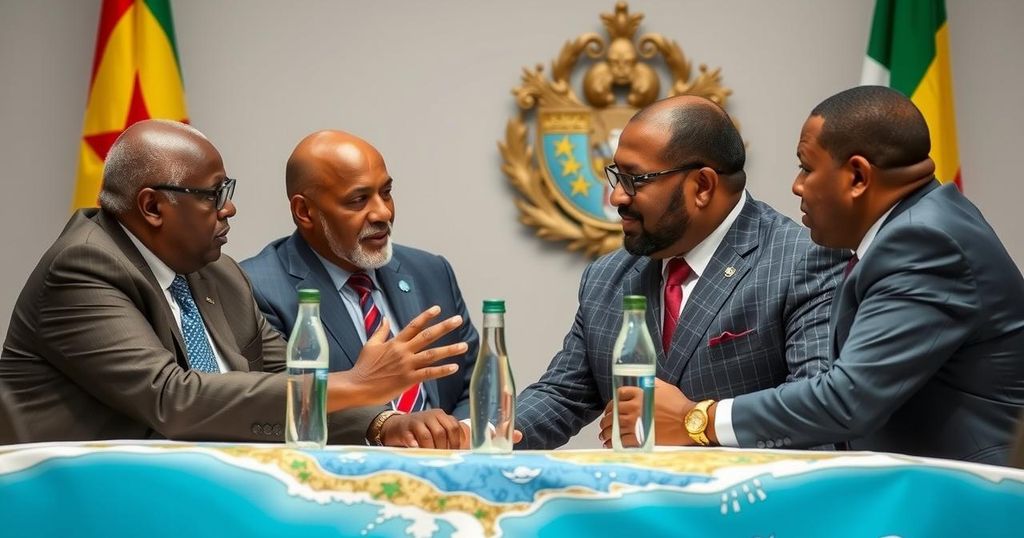Somalia’s President Hassan Sheikh Mohamud will visit Ethiopia to solidify a recent peace deal aimed at reducing tensions in the Horn of Africa. The visit highlights Ethiopia’s struggles for maritime access amid historical grievances, particularly concerning Somaliland’s independence. Facilitated by Turkey, this meeting seeks to underscore a new era of bilateral cooperation, while unresolved issues remain a concern for future relations.
On Saturday, Somalia’s President Hassan Sheikh Mohamud is slated to visit Ethiopia, as both nations aim to strengthen a recently established peace accord addressing escalating tensions in the Horn of Africa. Ethiopia, which lacks direct access to the sea, has been grappling with historical tensions regarding maritime access, particularly after a controversial deal with the self-declared independence of Somaliland that has exacerbated relations with Somalia. However, a new peace initiative facilitated by Turkey last month has created a pathway towards improved collaboration and stability in this turbulent region.
Somalia has remained particularly sensitive about Ethiopia’s maritime aspirations, especially in light of last year’s agreement which allegedly recognized Somaliland’s autonomy in exchange for military and port access. The upcoming meeting between the two leaders is viewed as a pivotal step in not only reaffirming the commitment to peace but also in addressing the longstanding grievances that have historically strained their interactions. Mohamud’s administration has expressed that this visit follows Ethiopian Prime Minister Abiy Ahmed’s invitation and signifies a fresh chapter in the bilateral relationship, emphasizing cooperation and mutual respect.
While this diplomatic effort seems promising, several critical issues remain unresolved, including ongoing border disputes and the position of Somaliland. The leaders are expected to discuss these challenges in their meetings, aiming to lay a foundation for stability and mutual trust in the Horn of Africa. The outcome of this visit could influence regional dynamics significantly, should both countries successfully navigate their complex historical relations.
The Horn of Africa is characterized by its intricate geopolitical landscape, with countries like Somalia and Ethiopia exhibiting a history of both collaboration and conflict. Ethiopia is landlocked and has long sought access to the sea, which has complicated its relations with neighboring nations, particularly Somalia. This situation escalated dramatically last year with Ethiopia’s controversial agreement with the self-declared Republic of Somaliland, prompting a strong outrage from Somalia and sparking fears of regional instability. Recently, efforts led by Turkey have initiated a peace process aimed at addressing these tensions and fostering a constructive dialogue between the two nations.
In conclusion, President Hassan Sheikh Mohamud’s forthcoming visit to Ethiopia represents a significant attempt to enhance bilateral relations and stabilize the region following a recent peace agreement. Despite the progress made, key issues, including territorial disputes and the status of Somaliland, must be addressed to ensure durable peace and cooperation in the Horn of Africa. The outcome of this diplomatic engagement remains critical for the future stability of both Somalia and Ethiopia.
Original Source: www.scmp.com






